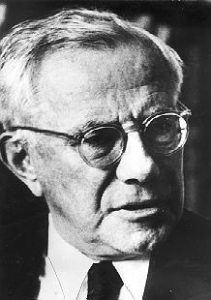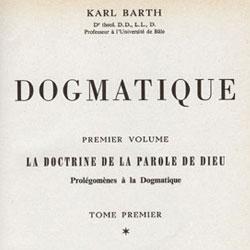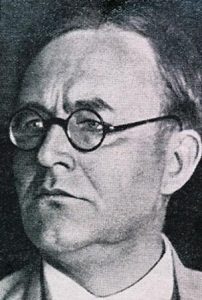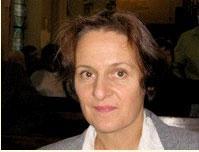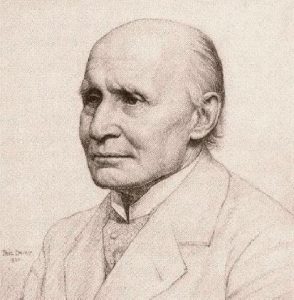His work can be divided into two periods : the German one and the American one.
In Germany he created the bases of his theology and pleaded in favour of a “religious socialism”. The purpose of religion was not to rule the world, but upon the advent of a positive notion, such as socialism, it should help make the notion come true while preventing its going to the bad, i.e. becoming evil.
In the United-States he disclosed his main trends of thought to a new audience. He never rejected religious socialism, but under the influence of existentialism and deep psychology, he became interested in the personal development of Christian faith, for example to the stamina and dynamism it gives to human life.
The theological work
Tillich extensively wrote outstanding theological and philosophical texts. He wished to be systematic, in so far as he tried to link various fields, indeed to systematise etymologically means “linking various things”. The evangelical message derives its meaning from human existence. Science, art, philosophy, politics should be used, and what distresses and rejoices human beings as well as what they fear or hope should help, not only to formulate the Christian message, but also to understand and conceive it. The common protestant procedure is first to analyse biblical teaching and then to adapt it to human situations. On the contrary, Tillich suggested going from the situation to the message, which brought him severe criticism.
For Tillich, faith is neither knowledge, nor feeling, nor tranquillity. It is a question and a quest for the ultimate meaning of our existence and of the world. It does not eliminate doubt, but includes it and fights it all at the same time. Faith is expressed through symbols which become idolised if taken literally. God always is “above God”, viz. above what we can say, even above the name we call him. He is both meaning and power, but neither impotent sense nor senseless power. He towers above what provokes the being and threatens to destroy it. This power is manifested in Jesus Christ who gives birth to a “new being” in ourselves and in the world, a new Adam or a new creature.
Tillich defined himself as a thinker on the edge, which he defined not as a seclusion line but as a place for meetings and exchanges, on the edge between religion and culture, between theology and philosophy, between sacred and profane. He exchanged ideas with occidental atheism, and with non Christian religions such as Buddhism. He claimed critical complementarity between Catholicism and Protestantism, indeed they should not be in harmony but in critical tension and reciprocal questioning. Besides rather technical works, Tillich also published books with predications more accessible to the general public.
Acceptance of his theology
His theology was widely accepted in the United-States. In France it was discovered only after his death. His works were translated into French by Catholics and non-Catholics. A French speaking Paul Tillich association organised international interdisciplinary conferences during which, beyond studying Tillich, people of all tendencies could hold debates and reflect.
A French-Quebec team jointly led by the catholic Canadian Jean Richard and the French protestant André Gounelle pursued the translation of his works, 9 volumes so far.

